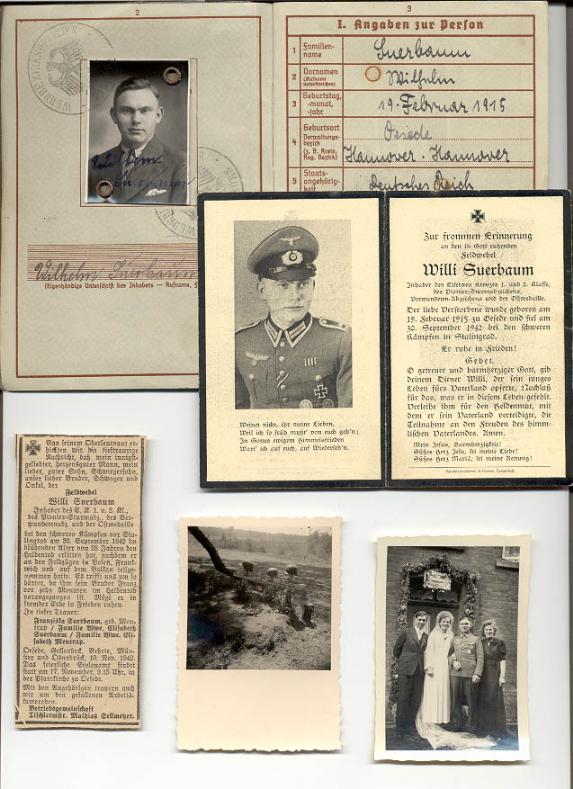
Wehrpass: The basic field personnel record for all draft-eligible for males in Germany in the 1930's and 1940's.. It was created and issued during the first visit to a draft/recruiting office by the soldier in question, and was maintained by the individual until called up for duty, including in the service of the RAD. Upon entry of duty by a soldier, the Wehrpass was turned over to the soldiers unit for administration. The Wehrpass usually contained a civilian-dress photo on the inside front cover, unless the individual was already on active duty when his draft was reinstituted. A plethora of items were recorded in each soldiers Wehrpass including unit administrative notes and records, dates of assignments, promotions, awards, battles, major injuries or illnesses, etc. Upon a soldier’s discharge his Wehrpass was returned after all the field entries were transferred to the Wehrstammbuch - a series of documents covering national veterans used to document a soldiers service for claiming benefits, etc. If a soldier was killed or became MIA while on duty, the Wehrpass was sent to his next of kin by the soldier’s original recruiting office.
| Go to (1.) Wilhelm Suerbaum KIA Stalingrad estate |
|
Go to (2.) Walter Pollei KIA Stalingrad estate Go to (3.) Alfons Breier KIA Stalingrad estate |
|
|
|

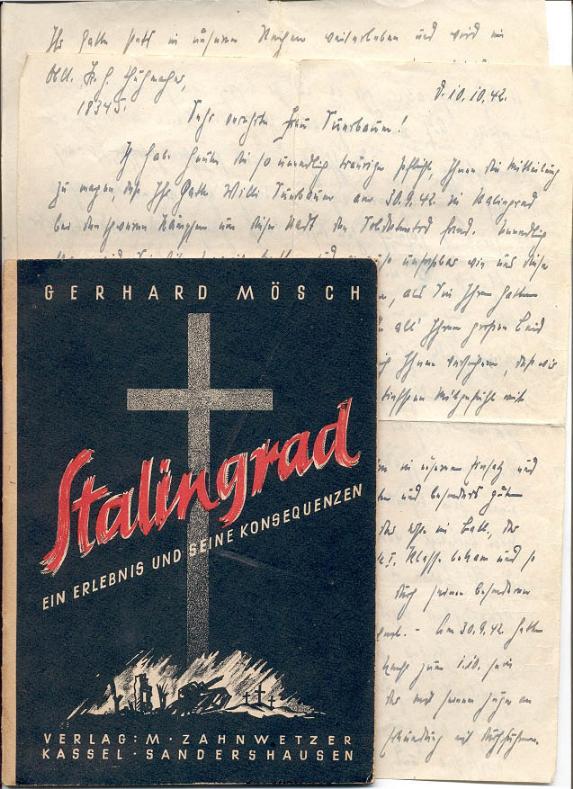
|
First Lieutenant K.H. Schuhmacher Date .10.10.42 18345 (Post office number - 2nd Company, 41st Pioneer (Engineer) Battalion) Dear Frau Suerbaum I have the so infinitely sad duty today to tell you that your husband Willi Suerbaum met a soldier’s death on 30.9.1942 in heavy fighting in the city of Stalingrad. So heavy is this message that will meet you and particularly so perplexing has this message met us, so it will meet you all the more as you and your husband only so markedly short time for itself. (Willi and Franziska were married in May of 1942) In all your immense sorrow, nobody can comfort you but I can assure you that we stand in this sorrow at your side and mourn in deepest compassion with you for one of our best. I have known Willi for many years and I know him as an especially brave soldiers and especially good comrade. He was first in the Battalion to receive the Iron Cross 1st Class for his bravery in France. Through all the campaigns his particular courage and bravery has been marked. On 30.9.42, our Battalion mission was for an attack. On the night on 1.10., Willi’s group leader told me that he had taken part in these attacks and combat reconnaissance. Everything on the missions had gone well and the goals were satisfied and completed. On the way back from a reconnaissance mission, a grenade exploded near the troops and your husband was seriously injured and died on the way to the military hospital. Sadly, this message seemed to us and personally, I regretted this loss; I lost not only an exceptionally good and capable leader but also a dear comrade that I had spent many hours with. This fight is exceptionally heavy here in the east and particularly here before Stalingrad the fighting has become especially hard. If it is address about this war in later years, where is one esteeming factor before all soldier involved in the fighting, is that these men gave and fought with a deep reverence before all those that live thought this. We all are convinced of the necessity of this fight and we all know that there no freedom for our people as long as the Bolshevisms is not buried in the ground. We are therefore thankful for all those that fought up to the last and committed to not forgetting all of them. So also, your husband becomes in our roll call of further lives and becomes in the spirit in the company until final victory takes place one day. Be assured we stand by your side and that our deepest compassion is for you, a worthy grave has been made for your husband and together with other comrades and I have taken a photograph of the grave. I will like to send you a picture when the pictures are ready. Personally I like to say my most cordial condolences to you once and your deepest feeling assure. Schuhmacher |
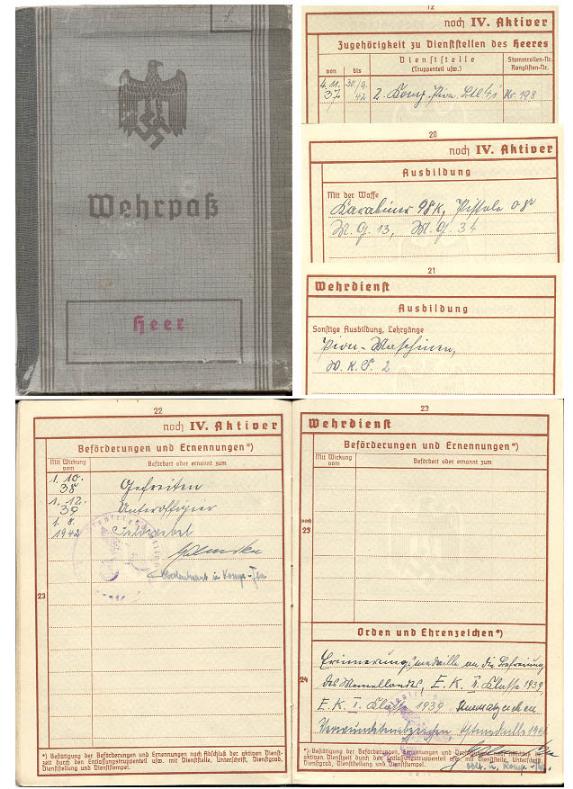
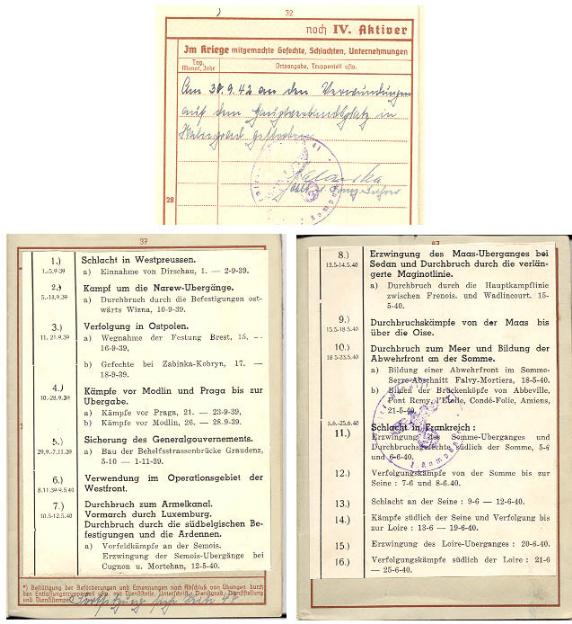
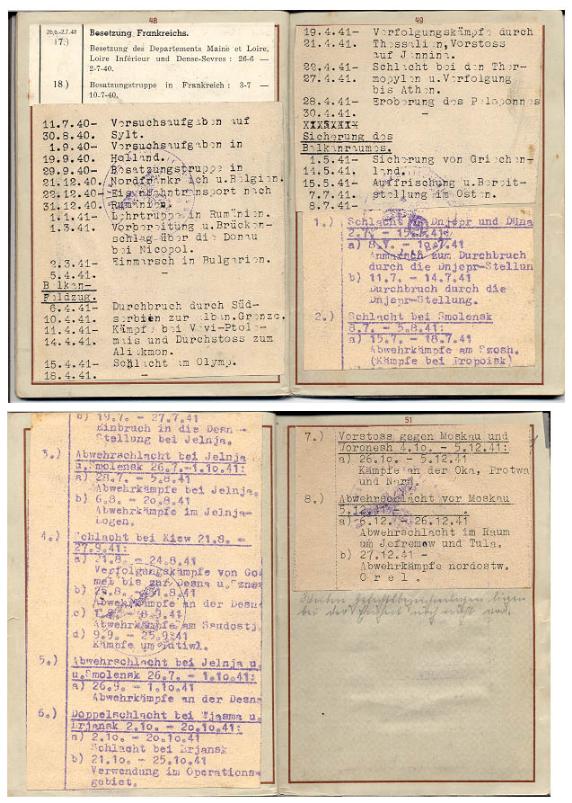
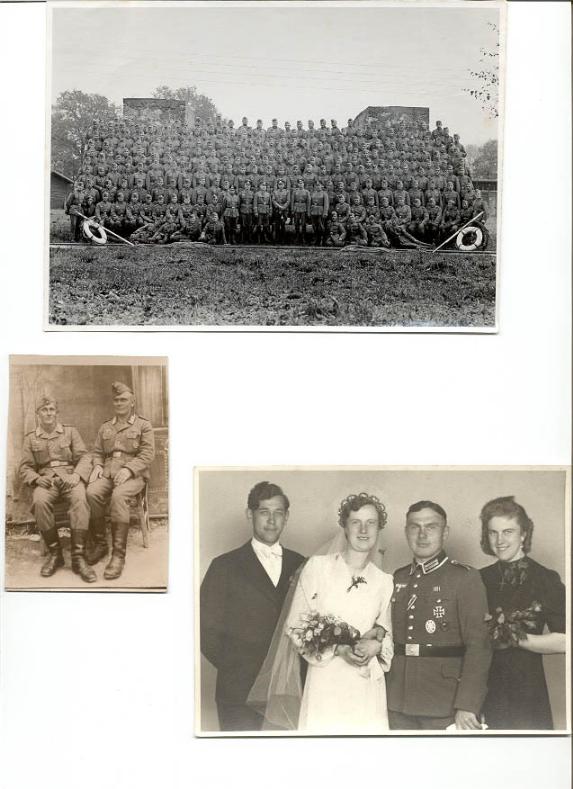
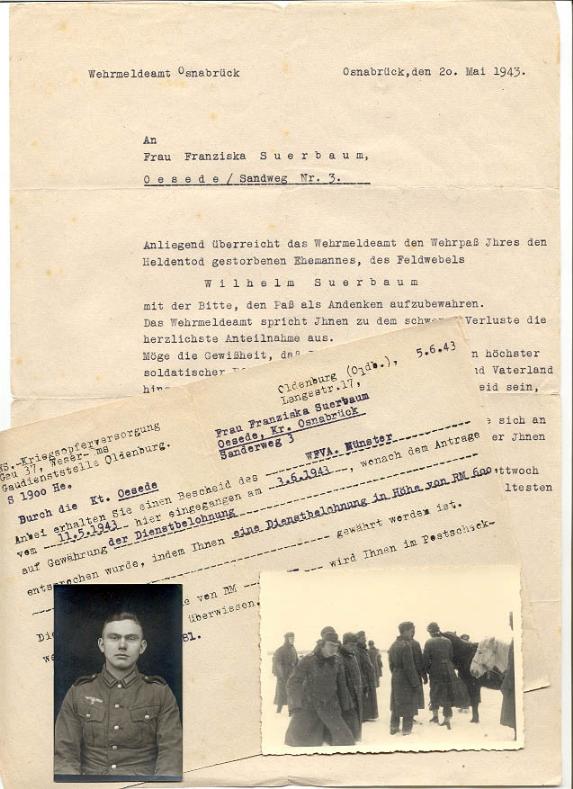
|
|
|
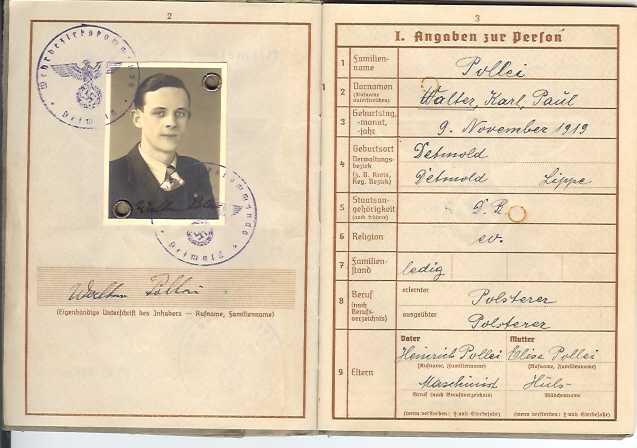
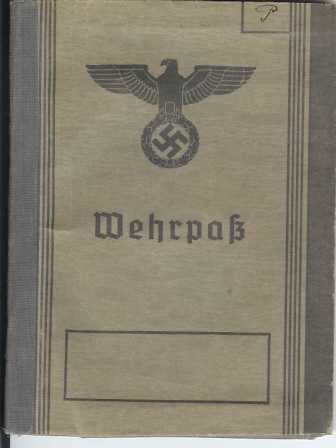
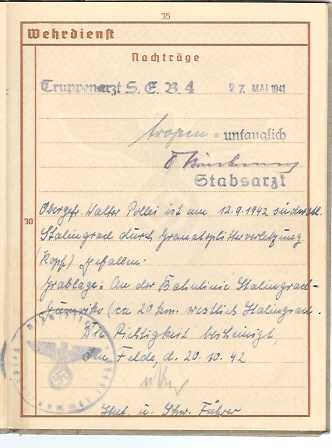
|
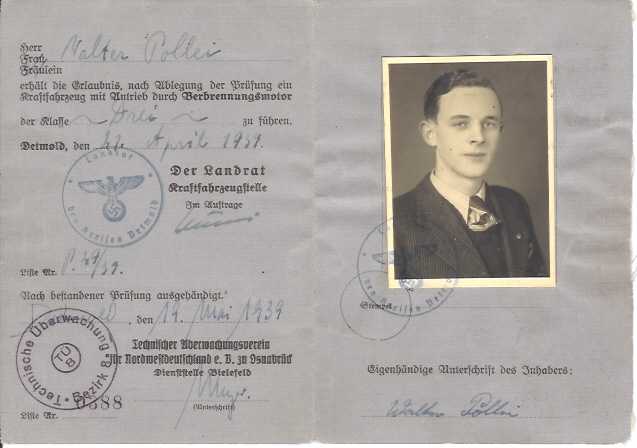
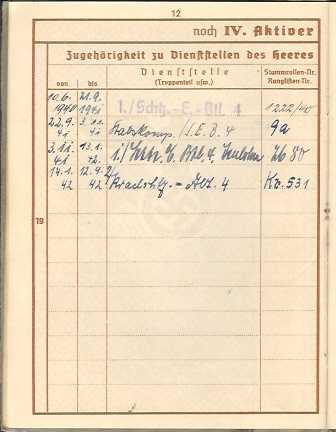
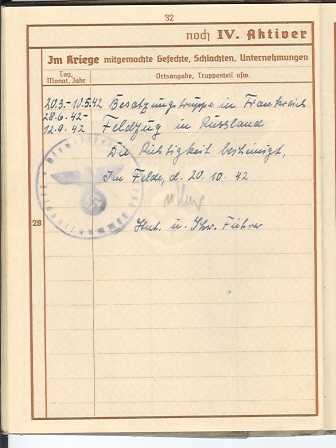
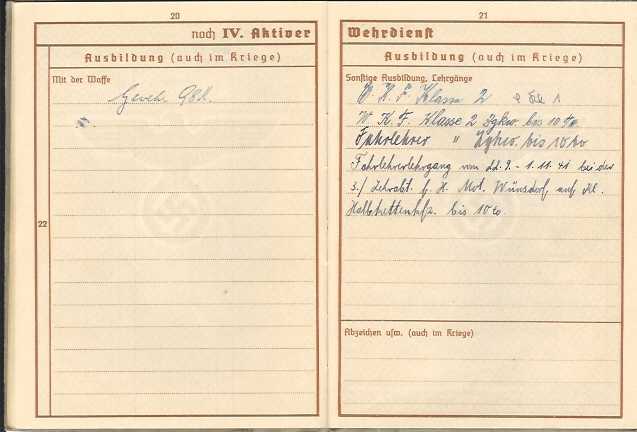
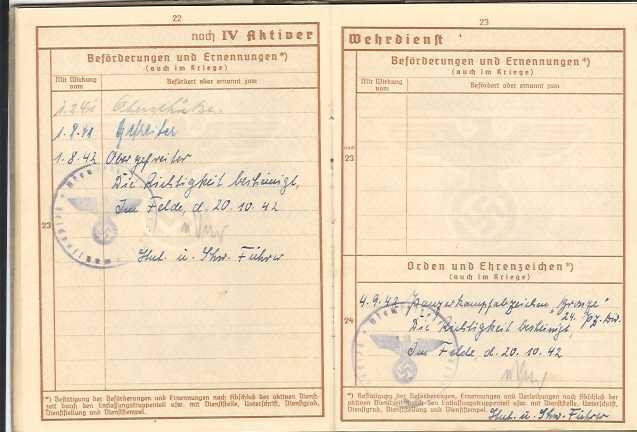
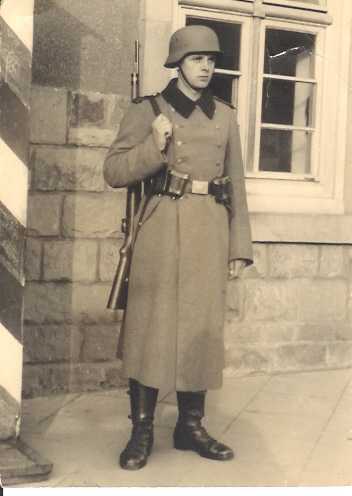
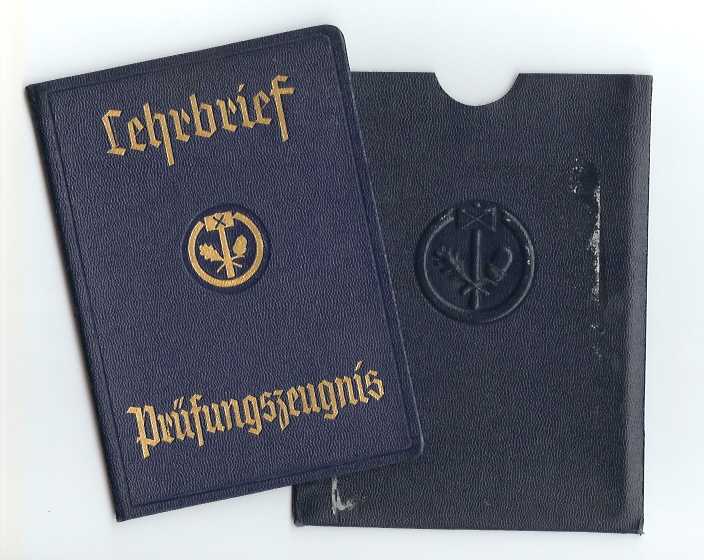
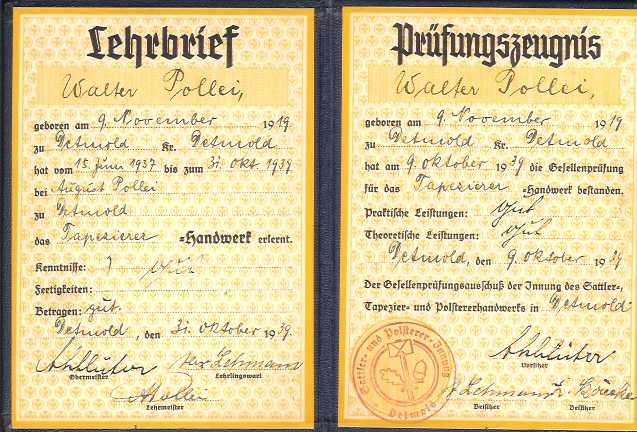
(3.) Jäger (Light Infantryman) Alfons Breier
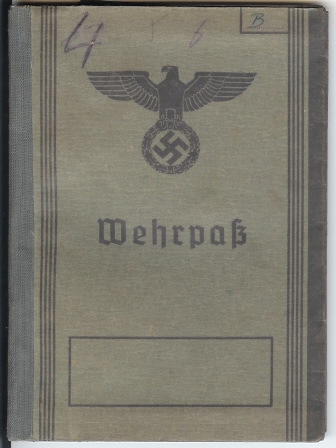
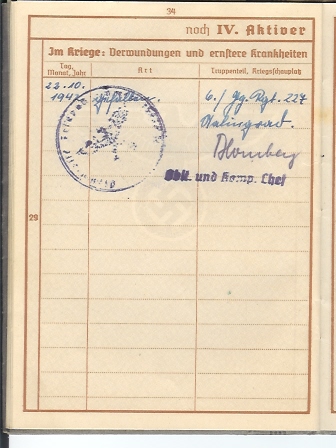
|
Alfons Breier served only 9 days in Jäger Regiment 227 before he was killed in action on 23.10.1942 at Stalingrad. |
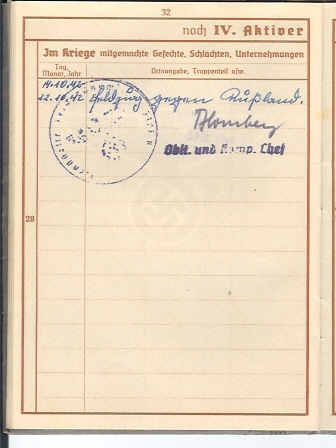
All items and pictures are from my private unpublished estate and are shown at 75% original quality and size.
|
|